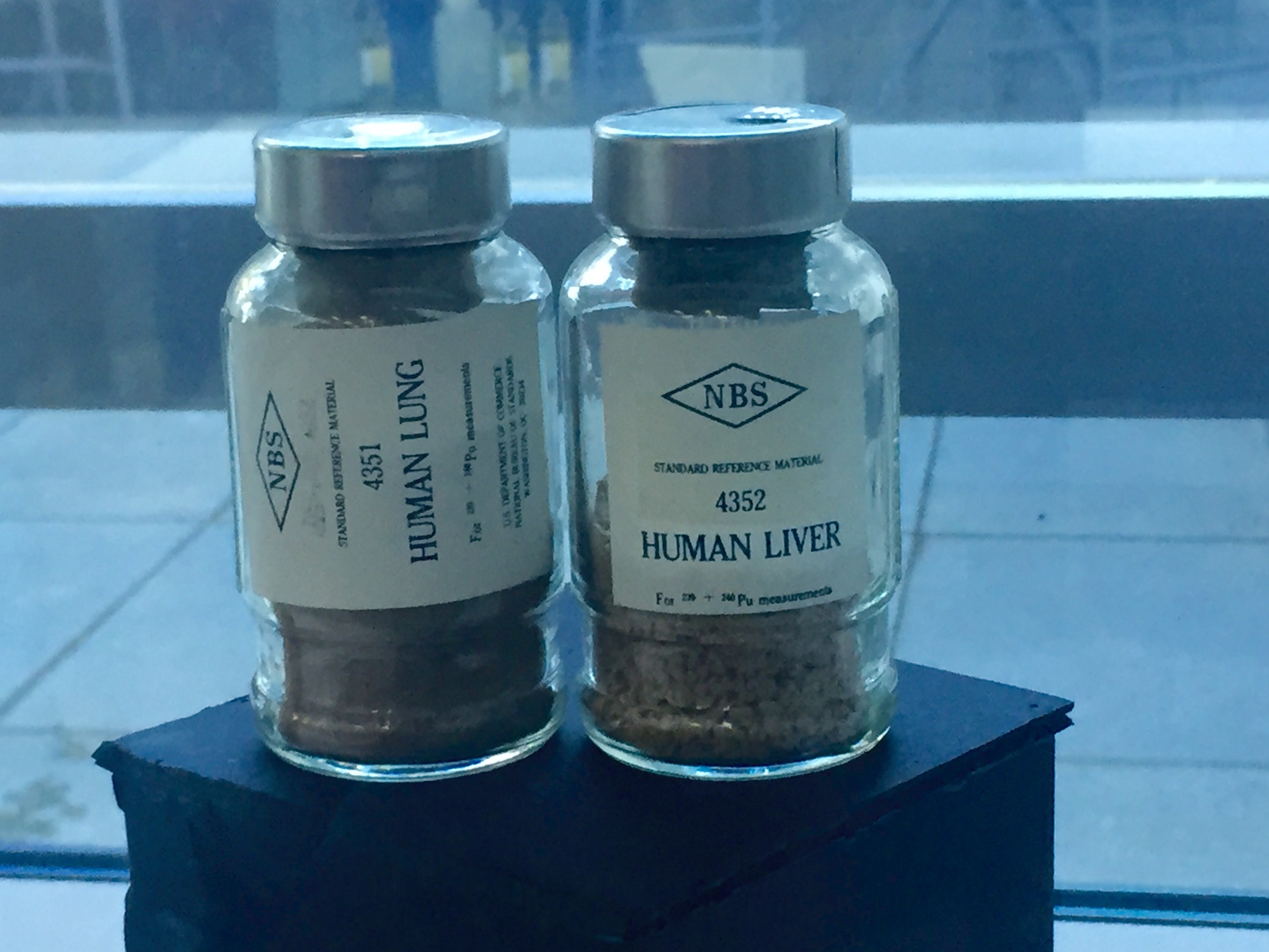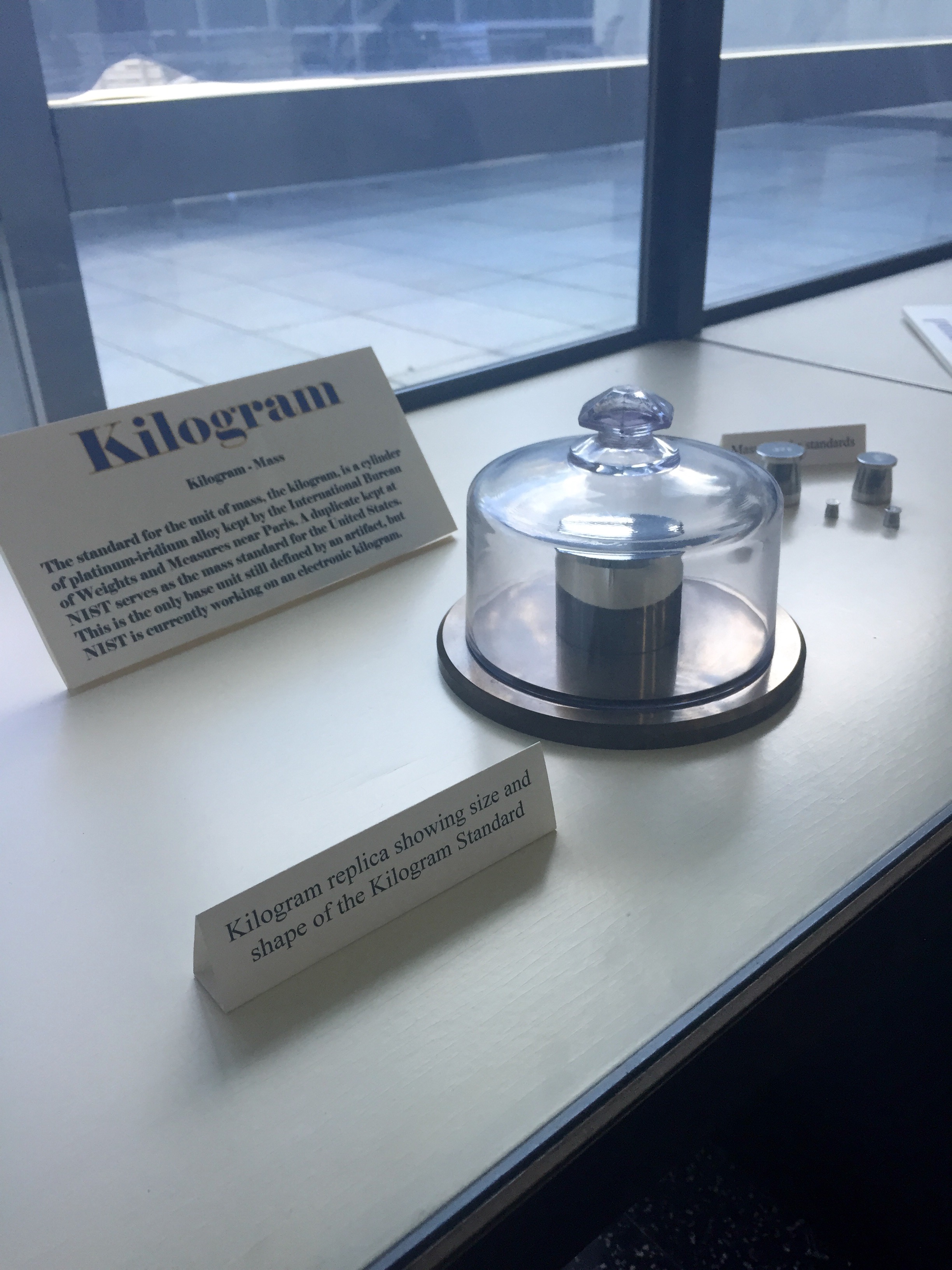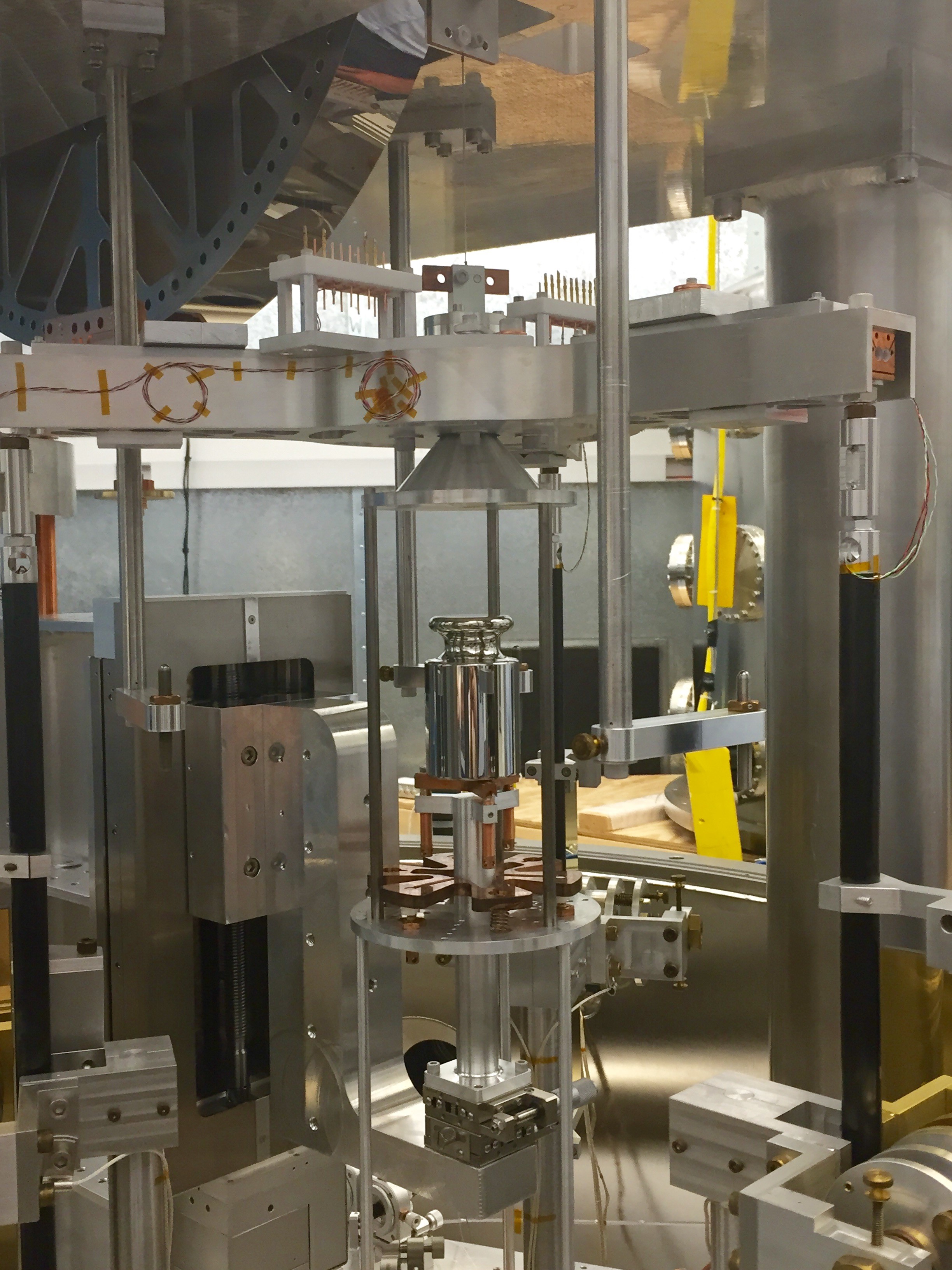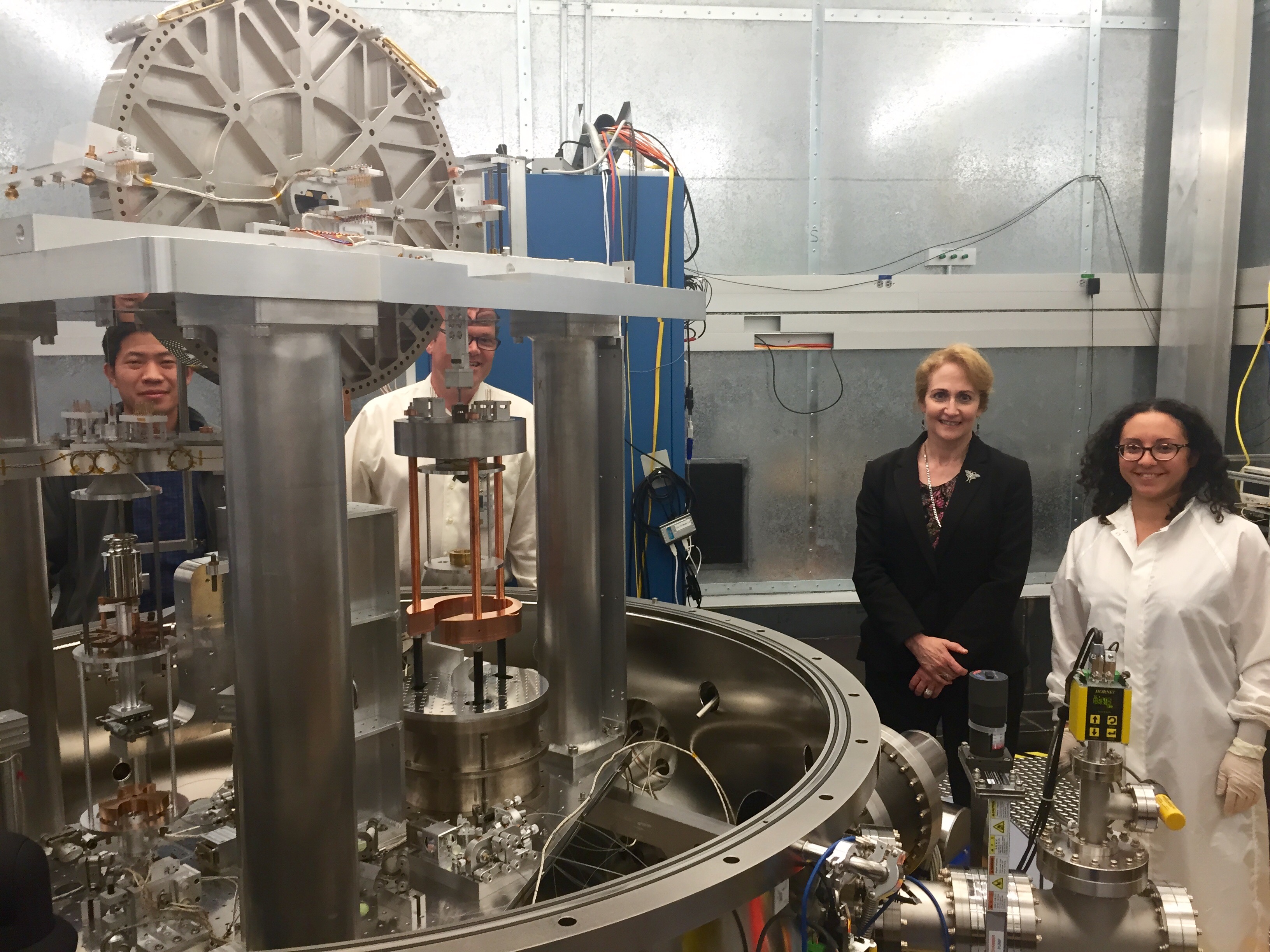The Measure of Science
Measurements are everything in science. It's simple – if you can't measure it, you can't study it. Yet scientists and the public often take for granted the measurements that we make every day. Underlying each measurement, whether time or distance or mass, is a standard. Standards are how we ensure that a centimeter in Washington, DC is the same as a centimeter in Des Moines, IA and that a dose of a drug administered at the Cleveland Clinic is the right amount, even if the drug was tested in Boston, MA. The study of measurement is “metrology,” an underappreciated field upon which the modern world rests.
This week, OSTP staff visited the main campus of the National Institute of Standards and Technology (NIST) in Gaithersburg, MD, where scientists spend their lives developing and calibrating the measurement standards that we rely on every day. The work at NIST impacts some of our Nation's biggest priorities, from improving cybersecurity to enabling breakthroughs in advanced manufacturing. NIST's ability to have such impact is tied to its cutting-edge research programs in measurement science. The fundamental importance of NIST’s work for all science was evident in every lab and display cabinet. From the low-tech reference material marked "human liver" and "peanut butter" in the NIST museum to the sophisticated kilogram standard and the atomic clock (housed in a NIST lab in Boulder, CO). By ensuring the accuracy and consistency of standards like these, NIST makes reliable science possible.

Human lung and human liver standard reference material, developed at NIST (All photos credit: Eleanor Celeste).
A particularly interesting NIST project is "Redefining the Kilogram." The current world standard for mass measurement is the International Prototype of the Kilogram, a small cylinder of platinum and iridium that was cast in 1879 and is currently stored in a facility near Paris.

Replica of the International Prototype of the Kilogram.
But because the mass of this physical standard has been drifting slightly over time–probably due to subtle effects like contamination–a replacement standard for mass measurement is needed. NIST, in coordination with other international laboratories, is developing a very sophisticated balance to redefine the kilogram. The calibration of this apparatus, named NIST-4, will be based on a fundamental physical constant, which by definition does not change. NIST-4, although still under construction, is a stunning piece of engineering. The precisely engineered balance is made out of a 1,000-kg magnet, 1.4 km of coiled wire, and numerous other components that are all precisely aligned and calibrated, and will ultimately be vacuum sealed. In the center of the balance is a polished platinum and iridium kilogram, which, with its classical curves, looks charmingly old-fashioned amid the modern technology of the electronic balance.

The machinery of the NIST-4 balance with a kilogram weight for reference.
In a sense, NIST's work is one of the most fundamental elements of basic research. How much more fundamental does science get than finding a way to define a unit of mass that itself doesn’t change, or developing a clock that will lose no more than one second in the next 14 billion years – the time it takes the Universe to double in age? The science of measurements may seem banal next to some “flashier” disciplines, but rest assured…this is science with vital applications to the daily lives of every individual in the United States and around the world.

Associate Director for Science, Jo Handelsman (third from left), and members of the NIST-4 team.
Jo Handelsman is Associate Director for Science at the White House Office of Science and Technology Policy.
Eleanor Celeste is an intern in the Science Division of the White House Office of Science and Technology Policy.
White House Blogs
- The White House Blog
- Middle Class Task Force
- Council of Economic Advisers
- Council on Environmental Quality
- Council on Women and Girls
- Office of Intergovernmental Affairs
- Office of Management and Budget
- Office of Public Engagement
- Office of Science & Tech Policy
- Office of Urban Affairs
- Open Government
- Faith and Neighborhood Partnerships
- Social Innovation and Civic Participation
- US Trade Representative
- Office National Drug Control Policy
categories
- AIDS Policy
- Alaska
- Blueprint for an America Built to Last
- Budget
- Civil Rights
- Defense
- Disabilities
- Economy
- Education
- Energy and Environment
- Equal Pay
- Ethics
- Faith Based
- Fiscal Responsibility
- Foreign Policy
- Grab Bag
- Health Care
- Homeland Security
- Immigration
- Innovation Fellows
- Inside the White House
- Middle Class Security
- Open Government
- Poverty
- Rural
- Seniors and Social Security
- Service
- Social Innovation
- State of the Union
- Taxes
- Technology
- Urban Policy
- Veterans
- Violence Prevention
- White House Internships
- Women
- Working Families
- Additional Issues

